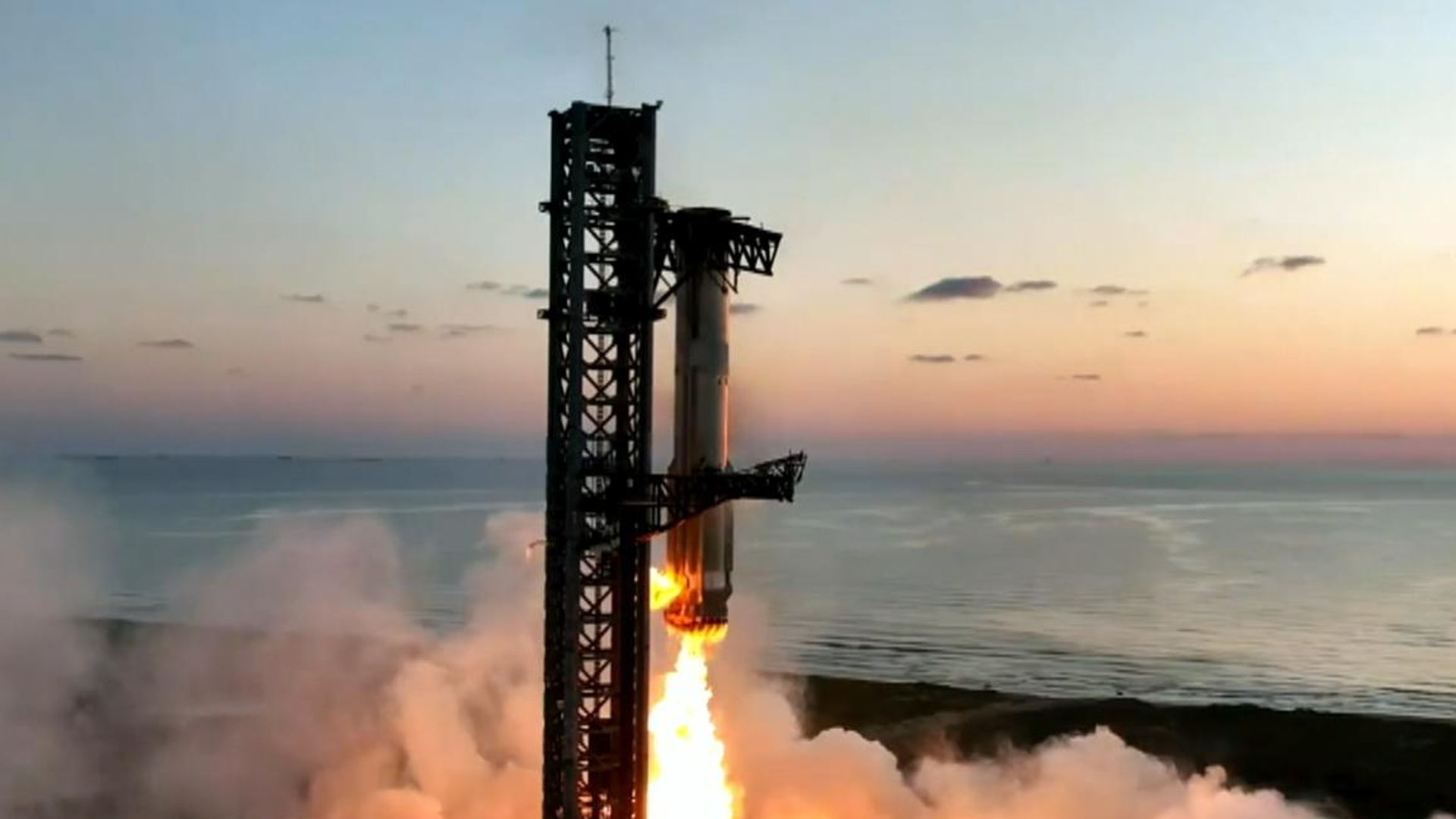SpaceX’s Starship has lifted off successfully on its fifth test flight from a launch pad in Texas.
This latest launch featured the company’s first attempt to bring the rocket’s Super Heavy booster back to the launch tower and catch it using huge robotic arms.
It separated from the Starship at a height of 46 miles (74km).
Then, as planned, it returned to Boca Chica on the border with Mexico, where it was grabbed and clamped in place using what are described as “chopsticks”.
Arguably, they look more like metal arms, or giant pincers. There is a video demonstration in the tweet below.
The Starship, meanwhile, will land in the Indian Ocean, west of Australia.
Starship and Super Heavy are designed to carry crew and cargo to the moon and beyond – and be reusable.
The Federal Aviation Administration (FAA) approved the launch only yesterday, weeks earlier than expected.
Previously, the FAA said a decision on Starship 5 was not expected until late November.
But it said Elon Musk’s company had “met all safety, environmental and other licensing requirements for the suborbital test flight”.
It has also approved the Starship 6 mission profile.
Musk has heavily criticised the FAA – partly over the delay in approving the licence for Starship 5, which SpaceX said was ready in August.
SpaceX describes Starship as the world’s “most powerful launch vehicle ever developed”, capable of carrying up to 150 metric tonnes.
This breaking news story is being updated and more details will be published shortly.
Please refresh the page for the fullest version.
You can receive breaking news alerts on a smartphone or tablet via the Sky News app. You can also follow @SkyNews on X or subscribe to our YouTube channel to keep up with the latest news.










